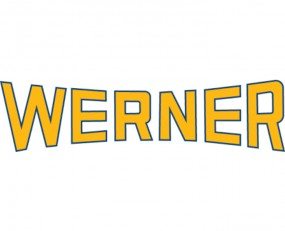
The trading update released by Omaha-based Werner Enterprises last week boosted its stock price, but the rally may be short-lived given the rich earnings multiples and unfavourable industry dynamics.
The rise in its equity valuation came on July 21, after the group said that “earnings per diluted share were $0.25 for second quarter 2016, at the upper end of the earnings guidance range of $0.21 to $0.25 per share announced on June 20”.
Both headline earnings and guidance included a $3.4m pre-tax gain from the sale of real estate assets – a one-off item that represents 18.5% of the $18.3m of quarterly net income.
Earnings per share were down 44% year-on-year due to “sluggish freight market conditions”, which combined “with the cost of driver pay increases implemented in first quarter 2016 and independent contractor per mile increases in fourth quarter”, and “a soft used-truck market”.
The group said freight demand in the second quarter was “significantly softer” than in the second quarters of the prior two years.
“Demand was weakest in April 2016 and showed some modest seasonal improvement in May and June,” it noted, while freight demand “thus far in July has been better than most comparable July-to-date time periods, and this has begun to help improve transactional spot market pricing”.
Total revenues stood at $498.6m, down 7% year-on-year. Trucking revenues, net of fuel surcharges, fell 5% to $335.5m, while sales from logistics activities were flat at $103.9m.
The lower costs base was primarily associated to fuel costs, which dropped 31.4% to $39.3m year-on-year, and similar trends were visible in the first half of the year.
However, rising wages and benefits – now its main quarterly operating cost, up to 32.2% as a percentage of total revenues against 30.3% one year earlier – continued to weigh on its operating profits, which were down to $62m in the first half of 2016 from $90.3m the year before.
The group is investing in its fleet to reduce the average age of its trucks and trailers, “Our investment in newer trucks and trailers improves our driver experience, raises operational efficiency and helps us to better manage our maintenance, safety and fuel costs.”
“The average age of our truck fleet was 1.7 years as of June 30, 2016, which compares to an average age of 2 years as of June 30, 2015,” it said.
Net capital expenditures in the first half of 2016 were $261m compared to $159m in the first half of 2015.
It revised budget requirements for investment and currently estimates net capital expenditures in the range of $350m to $400m for the full year, saying that it remains “committed to investing in a best in class fleet for the benefit of our customers, our drivers and the Werner brand”.
Operating cash flow rose 10% to $79.7m in the second quarter, but fell 11.3% to $171m during the first half of the year – and as a result its core free cash flow was negative to the tune of $90m in the first six months, which contributed to a lower gross cash pile.”
Source: Transport Intelligence, July 20, 2016
Author: Alessandro Pasetti